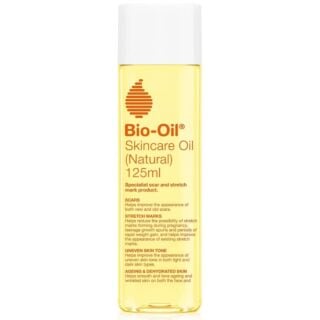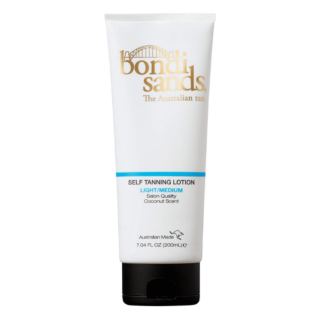The skincare you can and can't use during pregnancy

Pregnancy brings joy and changes, including shifts in your skin. From the famous ‘pregnancy glow’ to unexpected challenges like hormonal acne, taking care of your skin becomes a priority.
This guide is your go-to resource for understanding what skincare products and ingredients are safe and beneficial during pregnancy, as well as those you should steer clear of.
Whether you're a skincare enthusiast or a mum-to-be adapting to a new routine, this guide is here to support you on your journey.
What skin changes occur during pregnancy?
Pregnancy causes significant hormonal changes, driven by increased levels of human chorionic gonadotropin (hCG), oestrogen and progesteron. These hormonal fluctuations can manifest in various ways on the skin.
Pregnancy glow
Increased blood flow and hormonal changes can result in a radiant complexion known as the 'pregnancy glow'[1]. This is often caused by improved circulation and raised oil gland activity.
Acne
Acne during pregnancy is common, often triggered by hormonal changes that stimulate increased oil production. The surge in androgens can lead to clogged pores and the development of acne.
Hyperpigmentation
Hormonal changes may trigger an increase in melanin production, leading to skin darkening in certain areas. This can result in conditions like melasma (dark patches on the face) and linea nigra (a dark line running down the abdomen).
Stretch marks
As the body undergoes physical changes to accommodate the growing baby, stretching of the skin can occur, causing the development of stretch marks[2]. They appear when the middle layer of skin (dermis) becomes stretched and broken in places.
Skin sensitivity
Some women may experience changes in skin sensitivity and reactivity during pregnancy. Certain skincare products that were well-tolerated before pregnancy may cause irritation.
Spider veins and varicose veins
Increased blood volume and pressure on blood vessels can contribute to the development of spider veins (small, red blood vessels) and varicose veins[3] (enlarged, swollen veins, often in the legs).
Pregnancy safe skincare
Pregnancy safe sunscreen
Selecting a pregnancy-safe sunscreen is vital for safeguarding your skin without compromising the health of you and your baby. Opt for a broad-spectrum sunscreen with an SPF of at least 30, ensuring protection against both UVA and UVB rays.
Consider using a sunscreen containing zinc oxide or titanium dioxide, as these act as a surface barrier against UV rays. To cater to sensitive skin during pregnancy, choose a sunscreen that is hypoallergenic, fragrance-free and non-comedogenic, reducing the risk of irritation and acne.
Steer clear of sunscreens with potentially harmful chemicals like oxybenzone and avobenzone.
Can you use glycolic acid and salicylic acid when pregnant?
Using glycolic acid and salicylic acid during pregnancy requires caution. While glycolic acid, an alpha hydroxy acid (AHA), is generally considered safe in low concentrations for exfoliation, high concentrations or chemical peels are not well-established as safe during pregnancy.
Salicylic acid, a beta hydroxy acid (BHA) with acne-fighting properties, may be used topically in low concentrations (up to 2%), but it's advisable to use it sparingly and only on small areas of the skin.
High concentrations and oral forms of salicylic acid are best avoided during pregnancy. It's crucial to consult with a healthcare provider before incorporating products with these acids into your skincare routine during pregnancy.
Can you use niacinamide and hyaluronic acid when pregnant?
Both niacinamide (vitamin B3) and hyaluronic acid are generally considered safe for use during pregnancy. Niacinamide, known for its anti-inflammatory and skin-brightening properties, poses minimal risk, making it a beneficial addition to skincare routines.
Hyaluronic acid, a hydrating ingredient naturally found in the skin, is safe to use topically and helps retain moisture. You should always consult a healthcare provider first if you’re unsure.

Skin-lightening agents
Using skin lightening agents during pregnancy is something you must discuss with your healthcare provider, as these products may contain ingredients that could pose risks to the developing baby.
Hydroquinone is a common skin-lightening ingredient, and its safety during pregnancy is a subject of debate. While some studies suggest it might be safe when used topically in lower concentrations, others recommend avoiding it completely during pregnancy due to the risks.
Retinoids, such as tretinoin, adapalene and tazarotene, are often found in prescription-strength skin lightening products. These are advised against during pregnancy due to concerns about potential birth defects.
Chemical peels that use strong acids, such as salicylic acid, glycolic acid or trichloroacetic acid, may be best avoided during pregnancy, as the safety of these procedures are not well-established.
Self-tanning agents
Self-tanning agents, commonly found in sunless tanning lotions and sprays, are generally considered safe for use during pregnancy as they provide a tan without exposing the skin to harmful UV rays.
It's crucial, however, to carefully check the ingredients in these products, avoiding self-tanners that contain retinoids or other potentially harmful substances during pregnancy. Opting for self-tanning products with pregnancy-safe formulations and conducting a patch test beforehand can help ensure a safe experience.
Additionally, applying the product in a well-ventilated area, especially for sprays or mists, and adopting a gradual application approach can contribute to a more controlled and natural-looking tan.
What skincare to avoid when pregnant
Formaldehyde
Formaldehyde is a preservative and it can sometimes be used in skincare to prolong shelf life and prevent bacterial contamination. But it’s known to cause various health concerns, including irritation of the skin, eyes and respiratory system.
You should not use any products containing formaldehyde during your pregnancy due to its toxicity.
Can you use retinol when pregnant?
Retinol is a type of vitamin A, and taking or using it during pregnancy has been linked to birth defects. Even though topical retinol is not as concentrated, it's still a grey area, especially in the first trimester when the baby's organs are forming.
You must not use any retinoids during pregnancy due to the risks it may have on your baby.
How to check skincare products
It's a good idea to choose products specifically marked as safe for pregnancy. Before using a new product, do a small test to see if your skin reacts. If you're unsure or have specific concerns, talk to your doctor or pharmacist for advice.

Taking care of your skin during pregnancy is all about making smart and safe choices. Avoid certain ingredients like retinoids that could be harmful for your baby. Look for products that say they're safe for pregnancy, skip fancy fragrances and try out natural alternatives.
Don't forget to protect your skin from the sun with SPF 30, do a little patch test before going all in and, most importantly, chat with your healthcare provider if you're not sure.







